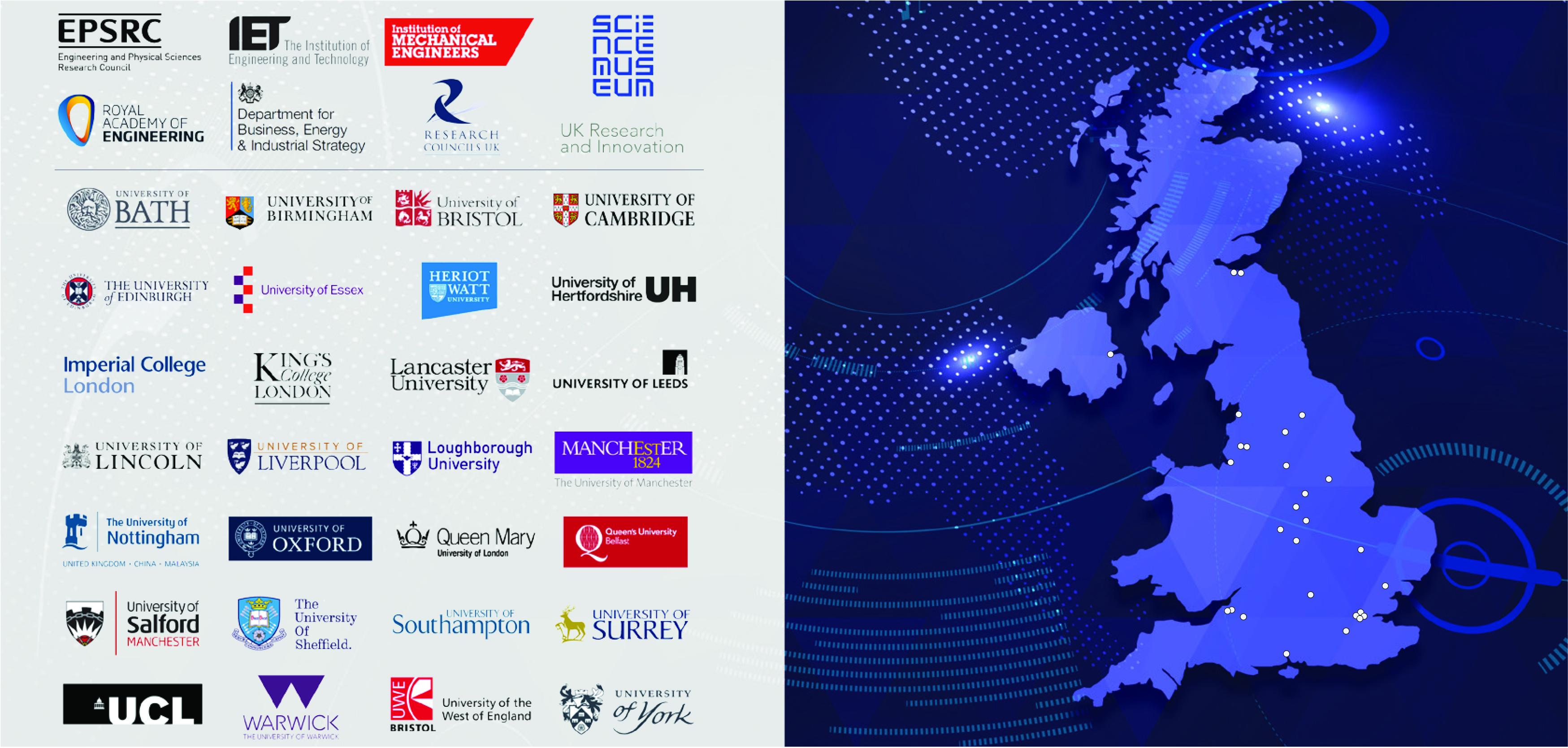The UK-RAS Network
The EPSRC UK Robotics and Autonomous Systems (RAS) Network was established in March 2015 with the mission to provide academic leadership in RAS, expand collaboration with industry and integrate and coordinate activities at eight Engineering and Physical Sciences Research Council (EPSRC) funded RAS capital facilities, four Centres of Doctoral Training (CDTs) and with, currently, 37 partner universities across the UK.
In 2012 the UK Government identified RAS as one of the Eight Great Technologies that will play a significant role to improved international competitiveness, productivity and economic growth. The government allocated £25 million capital investment to establish eight RAS centres for excellence across the UK. These together with the Centres for Doctoral Training (CDTs) form the EPSRC UK-RAS Network, chaired by Professor Robert Richardson, Leeds University.
The Network has a new hub at the University of Manchester with a new chairman, Professor Barry Lennox, with Co-Chair Professor Andrew Weightman. The Network will build on its previous strengths, and in particular aims to build on internationalisation, foundational research, and aid the development of Early Career Researchers.

The Network brings together the UK’s core academic capabilities in robotics innovation under national coordination and encourages academic and industry collaboration to accelerate the development and adoption of RAS. It has received strong support by major industrial partners, among them the Science Museum, Royal Academy of Engineering, the Institution of Engineering and Technology, the research institute of Remote Applications in Challenging Environments and the Institute of Mechanical Engineers. The Network is expanding to include broader stakeholders including key national laboratories and leading international collaborators.
The Network organises a wide range of activities including network and strategic roadmap events such as the UK Robotics Week, symposia, workshops, public engagement and exhibitions. It aims to strengthen the relationship with industry by supporting interdisciplinary mobility, secondments, developing proof-of-concept (PoC) projects and running design challenges. It has also a strong focus on government policy and high-level engagement with international stakeholders.
